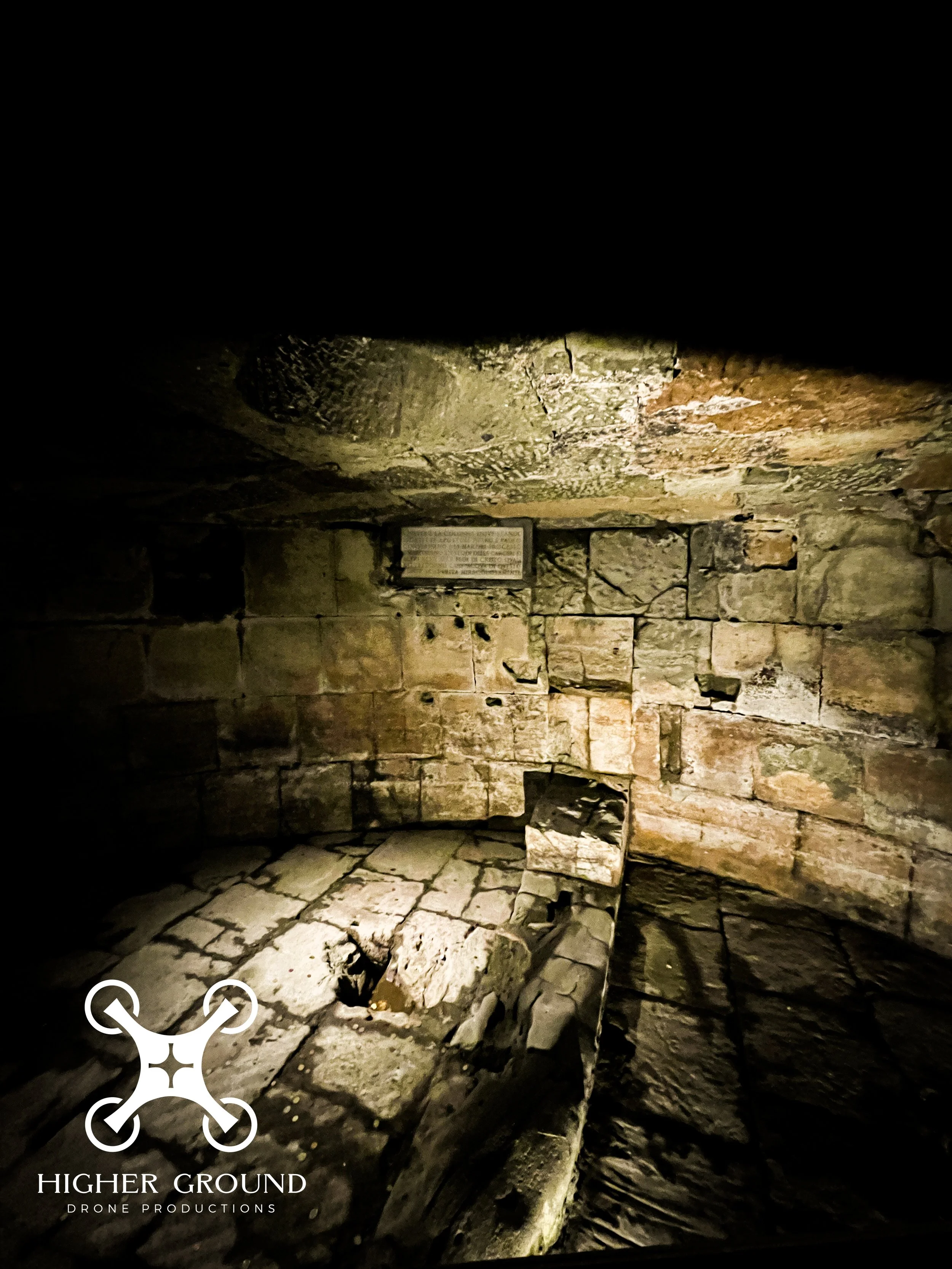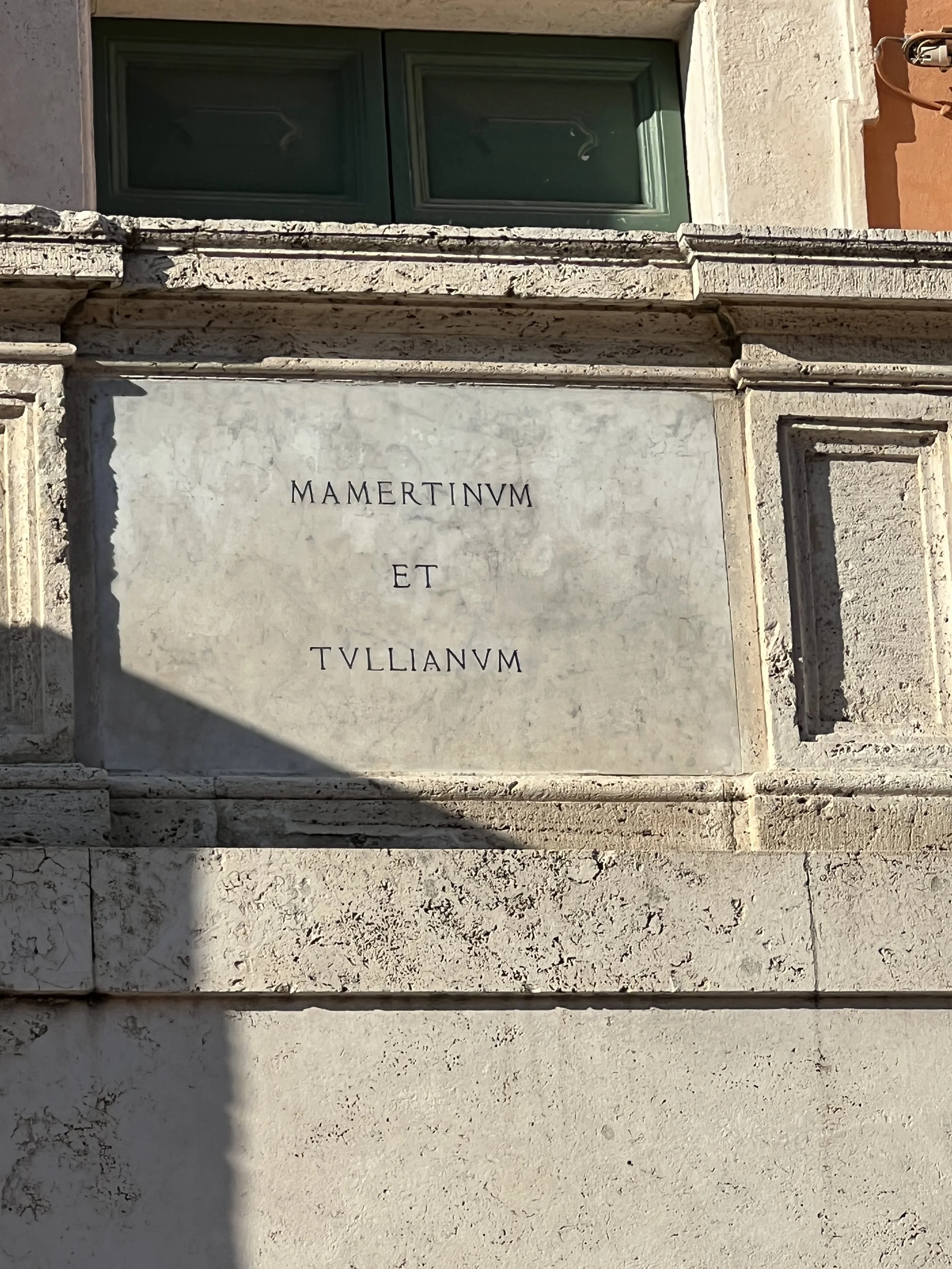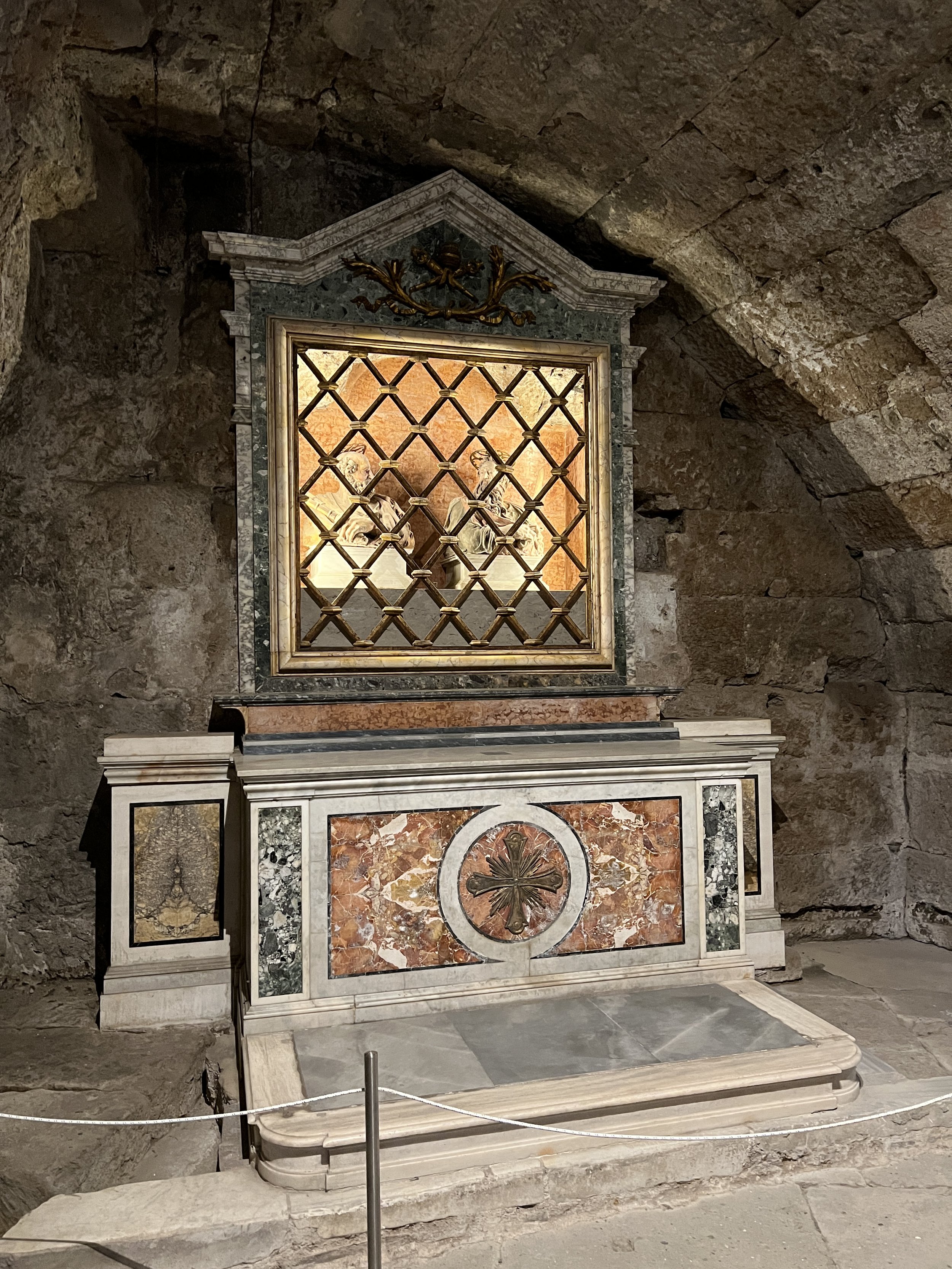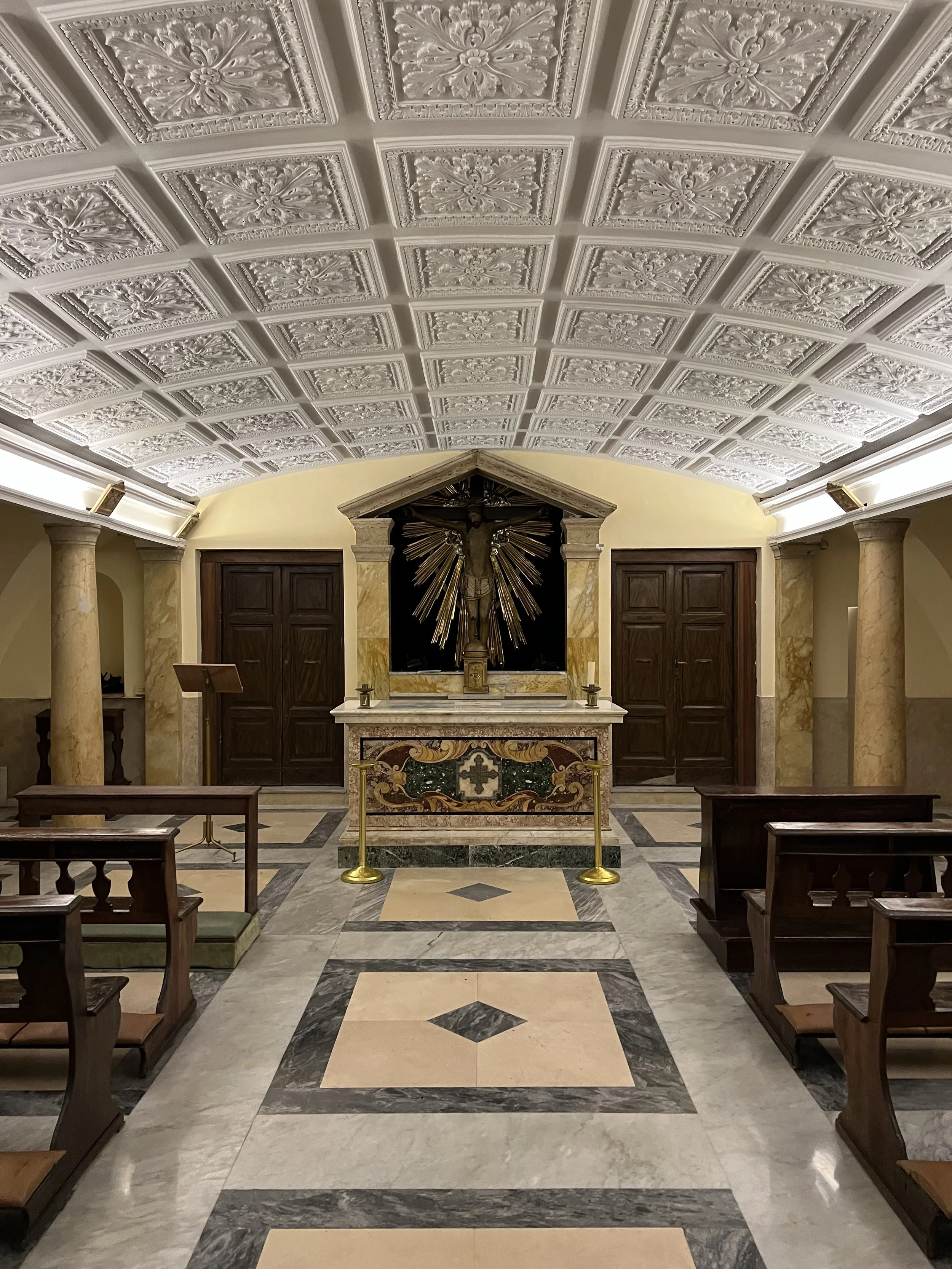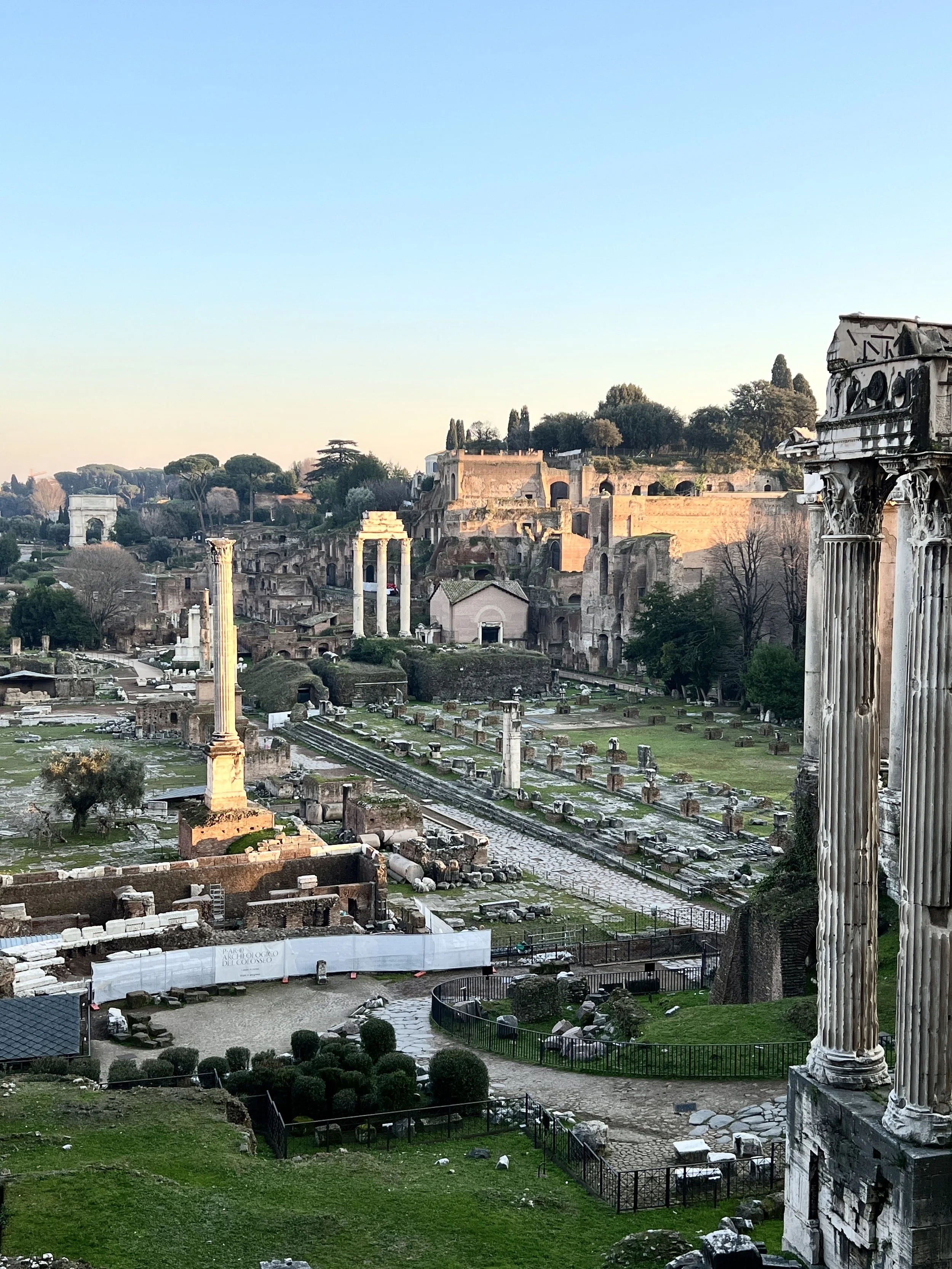Mamertine Prison, Rome
“For I am already being poured out as a drink offering, and the time of my departure has come. I have fought the good fight, I have finished the race, I have kept the faith.” 2 Timothy 4:6-7.
“I Paul, write this greeting with my own hand. Remember my chains. Grace be with you.” Colossians 3:11
Most biblical scholars agree that Paul was imprisoned in Rome twice. The first time under house arrest. The second time, just prior to his martyrdom, is thought to have been at the Mamertine Prison just outside the north of the forum, near the end of the 60’s AD. There is not direct archeological evidence that Paul (and Peter) were imprisoned here, but there is a very long tradition of Christians venerating this site, worshiping here, and this prison was a place for political prisoners who would be put to death. In the years of Nero’s reign, this is the likely place for the most prominent of Christian martyrs, Peter and Paul, to end up. There is much archeological evidence of the use of this space as a prison. It was constructed in 600’s BC by the King of Rome as a cistern. There was a spring in the floor of the lower level. Levels were added when it began to be used as a prison. The lower level today was at ground level in Roman times. It was convenient that a small door in the lower level opened directly into the sewer system of Rome and bodies could be pushed into the Tiber River. There is a plaque listing famous people whose lives ended here including: Simon Bar Jioras - fought Titus while defending Jerusalem in 70 AD, Vercingetorix - the leader of the Gauls who were defeated by Caesar 52 BC. The worst area, lowest and inner most, a place of waiting for execution, is the Tullanium. Named for the emperor Tullius who initiated the use of this horrible lower level of the prison.
Built over the prison is the church of St Josephs and the Carpenters. Frescos in the upper prison area are from the early times of worship at this site and depict Peter. People gathered in the field (underneath which was the now excavated Roman Forum) to worship and eventually a church was built in the 8th century AD. The current church was built in the 16th century. The cross in the lower Chapel of the Crucifix of the church used to be brought out into the field for worship per stories our guide told. In 2018 the carved wooden ceiling of the main church caved in. In 2022 we were unable to go into the main church.
Lower level of the Mamertine Prison, the Tullanium

